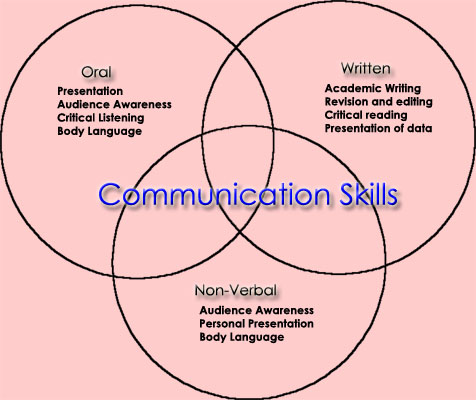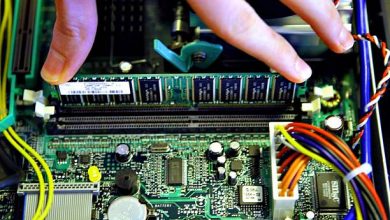
How To Develop Good Communication Skills: Effective communication has never been more crucial—or difficult—in the complicated and rapidly changing corporate environment of today, with its hundreds of various communication platforms, fully or partially remote teams, and even ethnic teams spanning multiple time zones. It’s important to be able to communicate well. They can support you with presentations in class, in job interviews, during conflicts, and in a variety of other circumstances. Enough Info

Fortunately, there are several techniques you may do to enhance your communication abilities so that you come across as more assured and sociable. As a result, communication skills may be the most important for managers. The good news is that one can develop and even master these abilities. You may improve your communication abilities for the benefit of both your business and your career by following these nine guidelines. How To Make A Fursona(2023Guide)
FAQs & Answers
How do I avoid fear when I am speaking to a group of people?
Start by preparing your material and rehearsing your presentation beforehand. This will help you feel more confident and reduce your fear. Additionally, focusing on connecting with the audience and making eye contact can help you feel more comfortable when speaking in front of a group. Finally, take some deep breaths before you begin your presentation to help calm your nerves.
Read Also; How To Be A Good Manager
Why is it so crucial to acquire communication skills?
The ability to communicate is crucial for daily living. You’ll require it to find employment and make purchases. In order to build new relationships and settle disputes, whether they are with friends, family, or romantic partners, you will also need it. How To Change Layer Opacity In Procreate
How can I become more self-assured and stop stumbling?
Make an effort to communicate with others as often as you can, about any subject. Make eye contact and speak clearly. It will get simpler as you practice more.
Be clear and concise
Word choice is the key to effective communication. Additionally, less is more when it comes to word choice. Clarity and, if possible, conciseness are the keys to effective and persuasive communication, whether it be spoken or written.
Establish your objectives and target audience before using any kind of communication. It will be easier to make sure that you have included all relevant information if you carefully and properly outline what you want to say and why. It will also assist you in removing extraneous information.
Avoid using terms that are extraneous or verbose, as these can detract from your content. And even while repetition could be required in some circumstances, utilize it with caution. You can make sure that your audience hears your message by repeating it, but too much repetition can make them completely tune you out. How To Change Layer Opacity In Procreate
Read Also: How To Heal A Broken Heart(A Guide2023)
Prepare ahead of time
Before starting any form of conversation, prepare what you’re going to say and how you’re going to say it. But being ready goes beyond simply practicing a presentation. Additionally, planning entails considering the full conversation, from beginning to end. Do some research on the data you might need to back up your argument. Think about your response to inquiries and remarks. Make an effort to foresee the unexpected.
Prepare a list of specific instances of your employee’s behavior to support your evaluation before a performance review, for instance. Know what you want in advance of wage or promotion negotiations. Prepare to talk about possible compromises and ranges; be aware of what you are and are not willing to accept.
And be prepared with specific information to bolster your claims, such as pertinent salary for your position and your location (but be sure that your research is based on publicly available information, not company gossip or anecdotal evidence). Create a list of possible questions, requests for more details or explanations, and arguments before starting any conversation so you are prepared to deal with them rationally and concisely. How To Get A Promotion(Guide2023)
Pay attention to nonverbal cues
Our body language, gestures, and facial expressions frequently communicate more than our words. Between 65 and 93 percent more weight than spoken words can be placed on nonverbal indications. And if the two are at odds, we are more inclined to trust nonverbal cues than verbal ones.
Leaders need to be particularly skilled at interpreting nonverbal messages. Employees who may be reluctant to express differences or concerns, for example, may exhibit their uneasiness by crossing their arms or by avoiding eye contact. Knowing how others are expressing themselves through body language may help you modify your communication strategies.
Read Also: How To Get A Promotion(Guide2023)
Practice active listening
Two or more people are almost always involved in communication. Therefore, for effective communication, listening is equally as crucial as speaking. However, listening can be more difficult than we think. Making sure you hear the whole message rather than simply the words the speaker is saying is the aim of active listening
Build your emotional intelligence
Emotional intelligence serves as the foundation for communication. Simply put, you cannot effectively interact with people until you are able to recognize and comprehend your own feelings. You can start to control these feelings and actions if you are conscious of your own emotions and the behaviors they cause.
For instance, leaders who possess a high level of emotional intelligence will find it simpler to practice active listening, keep their voices in tune, and exhibit positive body language.
Emotional intelligence includes more than just being able to recognize and control your own emotions. Empathy for other people is the other component, which is also crucial for good communication. A challenging conversation, for instance, can be made simpler by empathizing with the employee. Even while you might still need to break unpleasant news, showing that you understand their viewpoint and their feelings can go a long way toward mending fences or preventing misunderstandings.
Watch your tone
Even more significant than what you say is how you say it. Your tone, like other nonverbal cues, can either strengthen and emphasize your message or completely detract from it. When there is a dispute or disagreement at work, tone can be a particularly significant element. A term with a pleasant connotation that is well-chosen fosters trust and goodwill. A badly chosen term with ambiguous or unfavorable meanings can cause misunderstandings very quickly. How To Get Wood Stain Out Of Clothes
The tone in speech refers to the volume, intonation, and word choice used when speaking. It might be difficult to manage tone in real-time so that it reflects your goal. However, being aware of your tone will let you adjust it when necessary if a discussion seems to be headed in the wrong direction.
Writing can make tone control easier. Make sure to read your communication aloud once, if not twice, keeping tone and message in mind. If doing so won’t compromise confidentially, you could even wish to read it aloud or have a trusted coworker do so. How To Make Lime Green Paint(2023Guide)
Read Also: How To Overcome Lust(A Guide2023)
Try not to make assumptions
It’s simple to think that you are aware of another person’s desires. But this is a significant contributor to misconceptions, which is why miscommunications can turn into conflicts. The active listening paradigm can come to the rescue in this situation. Empathy, or attempting to comprehend what the other person is thinking, is a key component of having excellent communication skills.
This is significant since what we say often doesn’t accurately reflect what we really want. We frequently attempt to cover up or hide our true wants, especially when things are tough or it’s simple to become overwhelmed or humiliated. You may significantly reduce misconceptions and the likelihood of confrontation by asking questions, paying close attention to the responses, and repeating back what you believe they want.
Develop your self-awareness, especially when having difficult interactions.
Advanced communicators have a strong understanding of their own emotions. They know how to manage them when they become agitated or overly eager and prevent them from dominating the conversation or creating an unneeded commotion. When responding to something you don’t like, it’s critical to maintain composure. Take a stop if you feel your face getting flushed or your heart starting to race. Attempt to locate some quiet time where you may relax.
Read Also: How To Deal With Rude People( A Guide)
Knowing when to accept that you are mistaken is another essential component of self-awareness. Although it could feel like a major blow to your ego, I promise you’ll find that by owning up to your mistakes and doing your best to avoid repeating them in the future, you’ll gain the respect and integrity of your family, friends, and coworkers. How To Deal With Rude People( A Guide)
Speak up about your thoughts and ideas
Make sure you’re communicating your own wants, just as it’s critical to comprehend what others are looking for. If you don’t tell them, no one will ever find out, right? If you’re a leader, this communication skill is extremely crucial because what you say will determine how your team will behave. You’re setting an example for others to follow by being an open and honest communicator.
They will be more inclined to cooperate with others, make concessions when they are called for, and approach challenging circumstances with an optimistic outlook on how things will turn out in the end.
Conclusion
It takes time and repetition to master effective communication. When communicating, it’s critical to listen intently and pay attention to your words and body language. Prior to discussing significant subjects, spend some time getting to know the other person and developing a strong relationship. Additionally, it’s critical to approach talks with people with an open mind, consideration, and respect. Last but not least, keep your communication upbeat by speaking positively and showing appreciation for the other person’s efforts. You can gradually hone your communication abilities by paying attention to these suggestions.
Read Also: How To Deal With Stress(Guide2023)




